*This Friday, we begin our first ever Hugs and Chocolate workshop. Tonia Harris will begin with a look at dialogue. But for now, we’re excited to introduce you to author Amy Freeman and her inspiring writer’s journey.
“You should write a book, but no one would believe you.”
I cannot tell you how many people say this to me when hearing about my life. I can think of three right now without even trying. But what most of these people don’t realize is that the degree of challenge in my life is not that uncommon. I know many people whose lives rival my own. Some far more challenging than mine ever was. Trial is a part of life, and each hardship is relevant to the individual enduring it. But how we come through it can be unique. It was during my own living hell that I managed to write my first publishable novel.
Picture this. I was living in Florida at the time with my husband and five children. Writing was a luxury I abandoned years before to care for a disabled son and chase two teenage daughters around in the middle of the night. Somewhere in the mayhem the idea for my book pushed its way through the chaos and I began to write. I had forgotten how much I loved it. I escaped into my newly created world, becoming part of it, loving my heroes and loving to hate my monsters.
About a month in, three major events fractured the bliss. I received a call from Orlando informing me that my oldest daughter had just been arrested and put in jail for driving on a suspended license. She bolted for New York with a friend two months prior to avoid jail time. The panic I felt when I received that call from South Carolina is not one of my fondest memories. She had come home for Christmas. She was arrested New Year’s Day. Two and a half hours away from any family, she sat in a cell. She was terrified. So was I.
Not long after that my younger daughter, who was pregnant and also two hours away, called in tears because her friend’s mother was using drugs in her home and her boyfriend wouldn’t ask her to leave. We made the drive and brought her home to live with us. She was about two months away from delivering.
The final blow came when our 17-year-old disabled son made a turn for the worse. Lennox-Gastaut Syndrome, a rare seizure disorder stunted his mental development early in his life, allowing him to function at no more than a five-year old level. Behavioral aggression is a common element of this syndrome, but never before had it escalated to events we couldn’t handle. Out of nowhere he became more violent, harming himself and others. We found him injured in the morning on more than one occasion as he would get up in the night, wandering in an incoherent fog until a seizure would bring him down. He wouldn’t eat and wouldn’t medicate. After bringing in a nurse during the day wasn’t enough we began an excruciating, year and a half long search for a facility to care for him…end scene. Whew!
This all occurred at the same time. I dare say life couldn’t have been more complicated and frightening, but somehow a book came through it all with me, one entirely unrelated to the chaos pulling me down. “How in the world did you stay on task?” people ask. It’s a great question. I wonder myself sometimes. But honestly, writing my novel through the mayhem is partially what kept me sane. It truly was an escape for me. I would come home from work, do what had to be done, fight some battles physically and emotionally, and then I would retreat to my make-shift office, close the door and jump into another world. For those few hours every day I was able to set aside the panic, helplessness, frustration and sadness. I was able to go somewhere else and let the characters I created entertain and sooth me. There wasn’t a lot I could do about my current situation. I had to keep going. I had to take the blows and continue picking myself back up. Writing sustained me (and probably added depth to my characters!)
We all find ways to deal with heartache, fear and pain. Some people exercise, some meditate. Other’s drink themselves into oblivion. I suppose with a side dish of constant prayer, when I feel overwhelmed by the world, I write. It’s a productive coping device, and if you can convince yourself to set an impossible situation aside for a while, knowing you are doing all you can do, it is healing and rewarding to know you successfully created something in the middle of the storm.
Amy Freeman has spent a lifetime building stories. She grew up in Salt Lake City in a family of five siblings, a conservative father and a highly entertaining mother. She spent most of her time daydreaming against her will, in class, at home, while she slept…wherever really. She holds a degree in Criminal Justice. She loves music, ballet, and ghost stories. She has lived in Wisconsin, Nevada and Florida. Five children have blessed her life and one grandchild thrills her beyond words. She has a fantastic, supportive husband and an identical twin.
Her stories revolve around the supernatural, the elusive but possible, and the potential of the human spirit. She wrote a stellar screen play at ten, her first full length book at age thirteen, with her second and third following at nineteen. She has since written two more that she plans to publish this year. For more info go to her site: http://vedunywriter.blogspot.com
Contact Info:
Email: amyloufreeman@gmail.co
LinkedIn: Amy Freeman
Face Book: Amy Sipherd Freeman
Twitter: AmyVedunyWriter
Google +: Amy Freeman
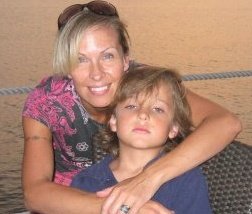
 Have you ever finished writing a manuscript, and after months of blood, sweat, and tears, you realize that even after all that work, your story doesn’t look at all like you imagined it in your head? In fact, after a second glance, you’re sure a toddler temporarily overtook your brain and scribbled 400 pages of crayon doodles? Of course you have…you’re a writer. You’ve probably felt that way about everything you’ve ever written…like I have.
Have you ever finished writing a manuscript, and after months of blood, sweat, and tears, you realize that even after all that work, your story doesn’t look at all like you imagined it in your head? In fact, after a second glance, you’re sure a toddler temporarily overtook your brain and scribbled 400 pages of crayon doodles? Of course you have…you’re a writer. You’ve probably felt that way about everything you’ve ever written…like I have.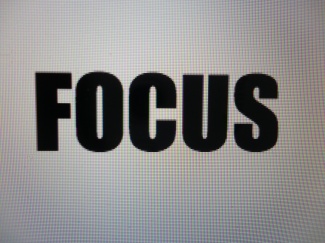
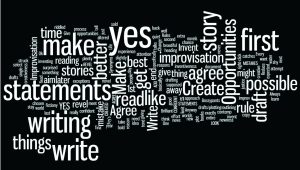


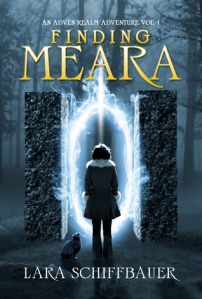

 Subplots. There. That was easy. Oh, you want to hear the whole explanation? Fair enough.
Subplots. There. That was easy. Oh, you want to hear the whole explanation? Fair enough.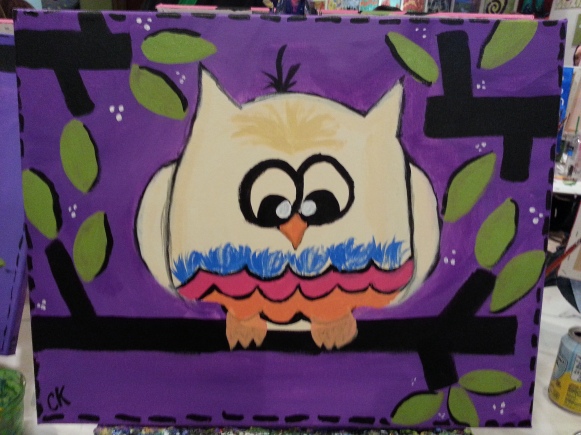

 Courtney Koschel has been writing since she could hold a crayon. She has worked as a journalist, editor, technical writer, and technical editor. Young adult fiction is near and dear to her heart, which is why she writes YA and all of its glorious sub-genres.
Courtney Koschel has been writing since she could hold a crayon. She has worked as a journalist, editor, technical writer, and technical editor. Young adult fiction is near and dear to her heart, which is why she writes YA and all of its glorious sub-genres. Tonia Marie Houston is a mother, writer, poet, bookworm, and blogger. When sheís not chasing her three spider monkeys, she spends her time revising a young adult novel about life after death and second chances. Though she began to pursue her career later in life, she hopes to inspire and motivate other writers to put their best book forward.
Tonia Marie Houston is a mother, writer, poet, bookworm, and blogger. When sheís not chasing her three spider monkeys, she spends her time revising a young adult novel about life after death and second chances. Though she began to pursue her career later in life, she hopes to inspire and motivate other writers to put their best book forward. This native Texan now lives with her Scottish hubby in North Ayrshire, Scotland, where she wanders the moors in search of William Wallace. She has been a guest blogger on Writer Unboxed and is currently working on the sequel to her YA supernatural novel, Touched by Darkness.
This native Texan now lives with her Scottish hubby in North Ayrshire, Scotland, where she wanders the moors in search of William Wallace. She has been a guest blogger on Writer Unboxed and is currently working on the sequel to her YA supernatural novel, Touched by Darkness. Jamie Raintree writes what she likes to call everyday fairytale love stories, featuring the little moments in life that are truly magical. She lives in Arizona with her husband and daughter and is currently editing her second novel.
Jamie Raintree writes what she likes to call everyday fairytale love stories, featuring the little moments in life that are truly magical. She lives in Arizona with her husband and daughter and is currently editing her second novel. Jani Grey is a South African ambivert, writer, reader, optimist, and bacon enthusiast. When her boss isnít looking she writes, revises, or edits YA Urban Fantasies in between work. Sheís sneaky like that. Sheís a NaNoWriMo addict and is currently working on two NaNo novels.
Jani Grey is a South African ambivert, writer, reader, optimist, and bacon enthusiast. When her boss isnít looking she writes, revises, or edits YA Urban Fantasies in between work. Sheís sneaky like that. Sheís a NaNoWriMo addict and is currently working on two NaNo novels. Rebecca Fields is a modern gypsy, roaming from place to place in search of ñ well, sheíll let you know when she finds it. Writing has become a way for her to share her adventures, both real and imagined. Along with her on her journey are her son and an assortment of rescued animals.
Rebecca Fields is a modern gypsy, roaming from place to place in search of ñ well, sheíll let you know when she finds it. Writing has become a way for her to share her adventures, both real and imagined. Along with her on her journey are her son and an assortment of rescued animals.